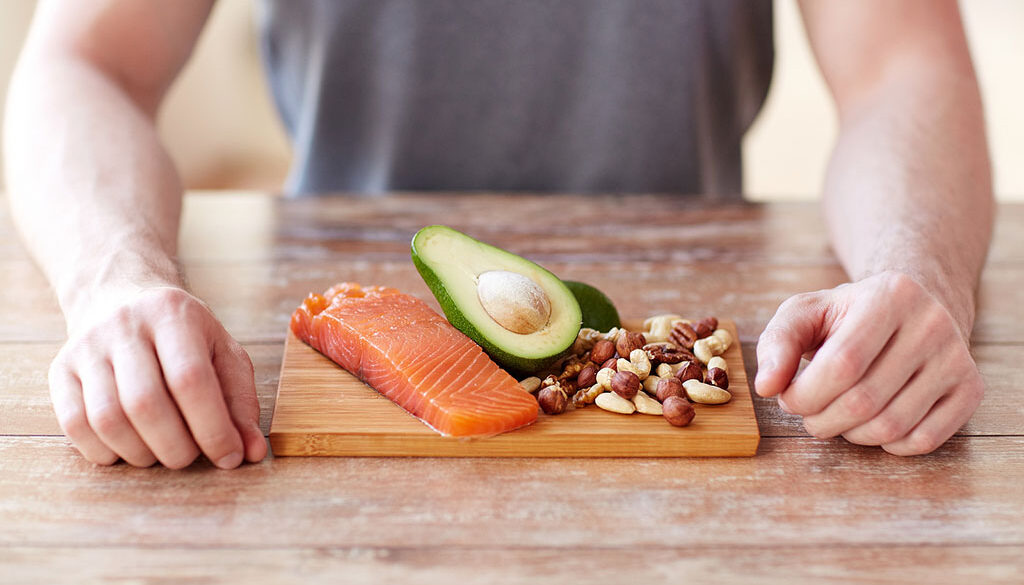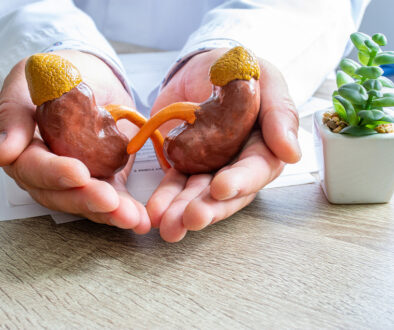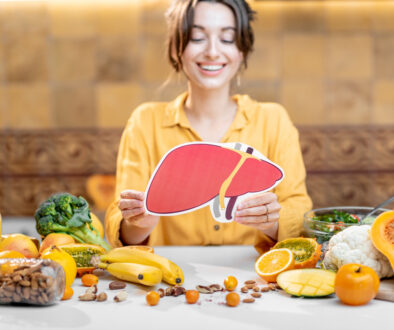Can You Eat Certain Foods to Prevent Colon Cancer?
Good nutrition provides many benefits, and improving your gut health is just one of them. Some digestive health concerns may be precursors to colorectal cancer, so you may be wondering – can you eat certain foods to prevent colon cancer?
Let’s take a look at smart food choices that can help reduce your risk for colorectal cancer, along with a few foods and behaviors to avoid to protect your colon health.
Colon Cancer Prevention
Colon cancer is the third most common cancer among both men and women in the United States, and about 1 in 25 people will develop it during their lifetime, according to the American Cancer Society.
While no single food or diet can completely prevent colon cancer, you can take an active role in reducing your risk of developing it with healthy lifestyle choices, such as exercising regularly, managing your weight, getting the appropriate cancer screenings, and making smart food choices.
How to Lower Your Risk: Foods to Prevent Colon Cancer
Let’s talk about healthy eating. What foods can you add to your diet to help prevent colon cancer?
A plant-based, high-fiber diet that includes plenty of vegetables, fruits and whole grains has been associated with a reduced risk of colorectal cancer.
- Vegetables. Consuming a wide variety of vegetables is helpful, since all kinds of vegetables, including tomatoes, onions, broccoli, carrots, eggplant, and even garlic, contain cancer-preventative properties.
- Fruits. Whole fruit (as opposed to fruit juices) such as bananas, oranges, cantaloupes, mangoes, apples, pears and berries are all beneficial.
- Whole grains and beans. Whole grains, such as quinoa, barley, oats and brown rice, and beans, including lentils, black beans, soybeans and others, are high in fiber and other healthy substances that support colon health.
How Does Fiber Affect Colon Health?
Fiber helps regulate bowel movements, aid in digestion, and prevent constipation. These factors help your body eliminate waste, which is good for your digestive system and your overall health.
Avoid These Foods and Behaviors to Help Prevent Colon Cancer
On the other hand, there are certain foods that are linked to an increased risk of colon cancer. These include red meat, such as beef, pork or lamb, and processed meat like hot dogs, deli meats, bacon and sausage.
You should also avoid drinking alcohol and refrain from smoking. Alcohol contains compounds that can damage the lining of the colon. If you do drink, it’s wise to limit consumption to no more than one drink per day. People who smoke are also at higher risk of developing colon cancer than those who don’t.
What Vitamins and Minerals Reduce the Risk of Colon Cancer?
Diets rich in folate (vitamin B9), found in fruits, dark green vegetables and dried beans may help lower the risk of colon cancer. Magnesium, vitamin B6, calcium and vitamin D are also thought to help with reducing colon cancer risk.
- Magnesium can be found in avocados, dark chocolate, bananas, leafy greens such as kale and spinach, and beans including lentils, black beans, soybeans and others.
- B6 is found in fish, beef liver, potatoes, some non-citrus fruits, and in fortified cereals.
- Most vitamin D comes from exposure to sunlight, and the rest from foods like saltwater fish, egg yolks, and mushrooms.
- Calcium can be found in dairy products such as milk, butter, cheese and yogurt, or from plant-based dairy alternatives.
Have Questions About Your Digestive Health? Raleigh Adult Medicine Can Help
Good nutrition is the cornerstone of a healthy body and mind, with numerous benefits such as improving gut health, supporting heart health, and reducing cancer risk, to name just three.
If you have questions about your digestive health or need guidance on an eating plan that’s right for you, our caring providers at Raleigh Adult Medicine can help.
Ready to get started? Simply contact us for an appointment.
:::::::::::::::::::::::::::::::::::::::::::::::::::::::::::::::::::::::::::::::::::::::::::::::::::::::::::::::::::::::::::::::::::::::::::::::::
Sources:
American Cancer Society, “Six Ways to Lower Your Risk for Colon Cancer,” https://www.cancer.org/cancer/latest-news/six-ways-to-lower-your-risk-for-colon-cancer.html
NIH: National Library of Medicine
The Role of Diet and Lifestyle in Colorectal Cancer Incidence and Survival
NIH: National Library of Medicine
Diet and supplements and their impact on colorectal cancer
https://pmc.ncbi.nlm.nih.gov/articles/PMC3819783/
NIH: National Institutes of Health
Vitamin B6
https://ods.od.nih.gov/factsheets/VitaminB6-HealthProfessional/
Stanford Medicine, “Colorectal Cancer Prevention Diet,” https://stanfordhealthcare.org/medical-clinics/cancer-nutrition-services/reducing-cancer-risk/colorectal-cancer-prevention-diet.html
:::::::::::::::::::::::::::::::::::::::::::::::::::::::::::::::::::::::::::::::::::::::::::::::::::::::::::::::::::::::::::::::::::::::::::::::::
The content within this article and others on this website is only for educational purposes and should not be considered as medical advice. For any questions or concerns, please consult with your healthcare provider.



